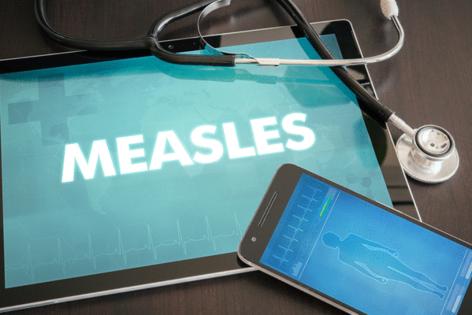How likely is a new pandemic in the future? Here's what Americans said in a poll
Published in Health & Fitness
In 2020, COVID-19 began spreading rapidly across the U.S., leading to major shutdowns and radically altering the lives of millions. Now, five years later, most Americans think the country could be plagued by a new pandemic, according to recent polling.
In a YouGov survey published in early May, 69% of respondents said it is somewhat or very likely that “the U.S. will experience a widespread outbreak of a new infectious disease in the next 10 years.” Meanwhile, 20% said this scenario is somewhat or very unlikely.
The results varied somewhat based on partisan affiliation, with 85% of Democrats saying a new disease outbreak is likely, while 61% of Republicans and 63% of independents said the same.
The poll — which sampled 1,067 U.S. adults April 1-4 — also asked about the likelihood of an existing disease, which children are currently vaccinated against, running rampant through the population.
A majority, 58%, said this was somewhat or very likely, while 29% said it was somewhat or very unlikely.
Here, again, there were noticeable partisan differences. Seventy-five percent of Democrats said this scenario was likely, while 55% of independents and 45% of Republicans said the same.
This question comes amid a measles outbreak in parts of the U.S., with 1,046 confirmed cases across 30 states as of May 22, according to the Centers for Disease Control and Prevention.
The poll further found that nearly one-third of respondents, 32%, believe infectious illnesses like measles pose more of a threat to the country today than 50 years ago. A plurality though, 38%, said they do not represent more of a threat, and 21% said it is about the same.
Democrats (44%) were far more likely than Republicans (25%) and independents (27%) to say infectious diseases are more of a threat today, according to the survey, which has a margin of error of about 4 percentage points.
Additionally, if there is another pandemic, 45% of respondents said creating a vaccine should be the government’s top priority, while 33% said it should be one of several priorities. Just 8% said it should not be a priority.
While the majority of Democrats, 68%, said developing a vaccine should be the government’s top priority, much smaller shares of independents and Republicans — 36% and 32%, respectively — said the same.
_____
©2025 The Charlotte Observer. Visit charlotteobserver.com. Distributed by Tribune Content Agency, LLC.










Comments